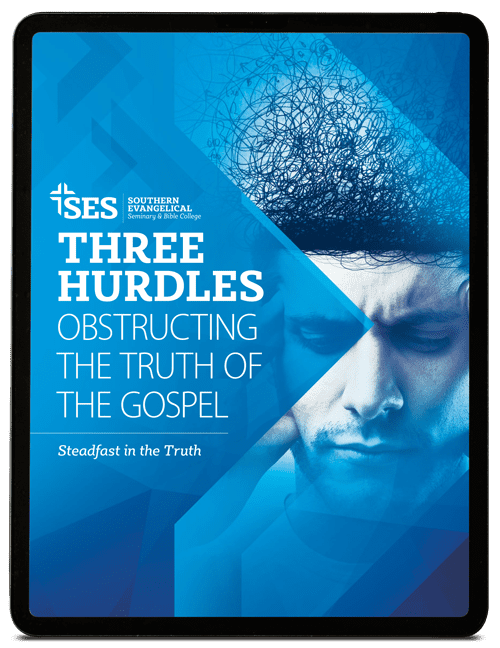There is no question that everyone wants peace in our world and some will go to great lengths to avoid conflict in order to maintain peace, even if they must compromise the truth. Compromising the truth is something we might expect in the secular realm, but most certainly not in the Christian Church, yet that is what studies are revealing. Our westernized world today is living under a state of delusion, and the vast majority do not even realize it. The average citizen believes what he is told by the media as the truth, and looks no further to investigate those claims. These are the people who are towing the “party line.” Dangerously enough, included in this group of citizens are those who are considered to be leaders of our society, and they are embedded into the fabric of our culture in every sector of our civilization. Unfortunately, compromise is also found in churches.
You may ask, what is the “party line”? The party line in our culture claims that gender doesn’t matter and all ideas are equal, so basically live and let live. Most true Christians will agree with the statement “live and let live.” We will not necessarily, however, fall in line with the rest of our society’s ideologies—ideologies such as the claim that your chromosomes could be wrong and that physical appearance can be a hindrance to who you really are. In other words, if you were born with ovaries yet you feel as though you are a man trapped in a woman’s body, you should seek surgery to make your outward appearance mirror the gender that defines who you believe you really are.
Due to the fact that our culture believes that all is equal, the party line also insists that all ideas about faith and religion are ultimately equal. For those living in the United States, it is all too clear that it is taboo to publicly claim that faith in a redemptive Creator who sets concrete boundaries for life is the one and only way to true peace (John 14:6). This becomes a problem for those of us who take God seriously. Most people are shocked when I tell them that many seminaries and “churches” in existence today are teaching that the Bible is not the fully inerrant word of God and that there are many paths to an ultimate end to finding peace in a place known as heaven. In my ministry, what I have found is that the watered-down Gospel has done more damage to belief in the God of the Bible than any other philosophy out there. The heretical teachings of the many liberal ministries in existence in the twentieth and twenty-first centuries have only served to contribute to nominal Christianity, as well as to those who have left the Church altogether because they no longer found it relevant.
Nominal “Christians” are the most difficult sector of our population to reach with the Truth. They will be the first to tell you that God is a big God and accepts everyone just the way that they are and that “Jesus came to forgive all sins no matter what.” This belief is only partly true. Yes, it is true God is a big God and God is all merciful and loving; however, our Lord expects obedience (Jn 14:15-16). For those who are nominal Christians, no matter what means it is all right to live any way that you please for as long as you please. There is no sense of true repentance with this ideology. These are the “c”hristians who resent anyone who insists that the Holy Bible is inerrant in all of its meaning. They are the ones who lead the way on compromising the Word when the secular culture demands that its version of truth trumps the teachings of the Bible, just to keep a sense of peace.
This is the burden that God has given to me, to speak Truth into our darkened culture and help those who have been misled for so many years and truly want to know God. This is why my ministry is focused on cultural issues that pertain to morals, ethics, tolerance, and faith. I have been steeped in some of the most difficult topics of our day, such as sexual diversity, tolerance, and pluralism. What I have experienced time and time again is that no matter what the issue, it can be traced back to a lack of belief in Scripture as the inerrant word of God. This is where Southern Evangelical Seminary has truly given me a firm foundation on which to stand in order that I reach others with Truth.
Through the systematic teaching of the classical method of apologetics, I have learned to seek objectivity in meeting people where they are. As a theologian, my natural inclination is to see others as individuals who are created in the image of the Creator. It does not matter whether the individual is a flat out self-proclaimed atheist or a nominal Christian. The training that I have received has been invaluable for me as an apologist and a theologian. SES has prepared me in the art of discerning the various worldviews that I come across almost on a daily basis, just by listening to what people say and detecting the contradictions in their assertions and actions. Both Dr. Floyd Elmore and Dr. Richard Howe taught us how to build a case with a focus on the worldview that is being espoused and where that worldview originated. Knowing the history behind a person’s ideology has proven to be an invaluable tool.
In my own research, I frequently find that the misconceptions about biblical Christianity are rampant in the United States. Christianity is seen as a religion with irrelevant rules and regulations that were long ago outdated. Belief in the God of the Bible is seen as excessively restrictive in the way that one chooses to live out one’s personal life. Many, if not most, view the Christian faith as simply another expression of belief in a higher power or being. It is an unfortunate fact, but we are finding these misconceptions of both the moral element and the exclusive doctrine of our faith being taught inside and outside of the local church.
Southern Evangelical Seminary equipped me to build a defense from both the bottom up and the top down depending on the individual situation. Their solid curriculum taught me to listen to others with a highly-tuned discerning ear. It is invaluable to know how and what to listen for and then how to follow up with questions that are designed to help reveal the flaws in the other person’s faulty logic. In any conversation, timing is everything, and the education that I received at SES has helped me realize that in every argument, there is a way to respond that will convey information at the appropriate time.
The faculty at SES teaches by example. The way that the classes are structured trained me to emulate the way that the professors build their defense. What I have noticed is that although the individuals with whom I may engage in conversation may not exhibit linear thinking in their arguments, it does not mean that my response cannot be linear in its logic. In fact, any defense that I build must be linear in order to help the other person to think straight. Most Christians tend to forget that giving biblical examples to make their point may not always be the most effective defense of the Christian faith. The training that I received at SES exemplified this fact by teaching me how to build a defense for truth by focusing on historical and scientific facts that are based on evidence and can be verified in the secular realm.
For my ministry, the knowledge of higher and lower criticism has proved to be invaluable. As I mentioned previously, the misconceptions and confusion that I see always seem to point back to a lack of belief in biblical inerrancy. SES has equipped me to confidently defend biblical inerrancy and hence help skeptics and nominals alike to think about what and why they believe the way that they do. I would recommend SES to anyone seeking higher education in the art of apologetics.






